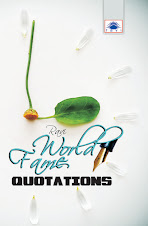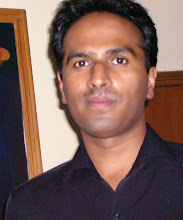An Unfinished Melody from the Valleys of Kashmir
There are films that dazzle with complexity, and then there are those that move in a straight line, free of narrative entanglements. Songs of Paradise belongs to the latter category—a simple, unhurried piece of cinema directed by Danish Renzu.
What comes as a surprise, however, is that this film is backed by Excel Entertainment—the very studio that once gave us the electrifying Gully Boy. Here, none of that creative energy, none of that signature vibrancy, seems to have filtered through. Renzu’s direction feels adrift, and the casting choices rarely align with the depth demanded by the characters. There are traces of Iranian cinema’s quiet influence, but the film fails to embody its contemplative spirit, nor does it capture the raw scent of Kashmir, nor present anything refreshing enough to charm today’s discerning OTT audience.
The camera, though, often redeems what the narrative cannot. Cinematographer Vincenzo Condorelli paints frames that are both lyrical and restrained, holding the film together with a visual grace it otherwise lacks. Editor Hemanti Sarkar works hard to keep monotony at bay, yet the weakly structured screenplay smothers those efforts. At times, the film feels claustrophobic, as though confined not to the wide valleys of Kashmir but to the walls of a matchbox—its world reduced to just two recurring spaces: a home and a studio. The repetition chokes the air out of the viewing experience.
In the restless ecosystem of OTT, where stories must reinvent themselves every few seconds, Songs of Paradise neither leaves an imprint from its past frames nor compels us to anticipate the next. Its trajectory is too predictable, its storytelling too indulgently paced.
Still, Saba Azad’s sincerity glimmers through the fog. Her performance is layered, worthy of admiration. The final scene, where Noor Begum’s granddaughter is to sing her song, holds the promise of magic. One almost imagines Alia Bhatt walking into the frame—a narrative twist that might have lent the film a spark. Curiously, her real-life mother Soni Razdan plays Noor Begum, and her performance carries shades of Alia in unexpected flashes, a ghostly resemblance that lingers.
As a musical drama, the film carries music in its veins, but the songs, while pleasant, seldom penetrate the soul or etch themselves into memory. This again is a failure of direction—the inability to transform melody into emotional permanence.
Yet there is one undeniable strength: the dialogues. They strike with poignancy, at times stirring courage, at times compelling reflection. Each line arrives like a quiet message, reaching directly for the heart. Here, Niranjan Iyengar and Sunayana Kachroo deserve full credit. Their words lend the film a dignity that the screenplay and direction could not, rescuing it in moments where everything else falters. Some lines echo long after the credits roll, and it is in these resonances that the film’s true beauty lies.
With producers Farhan Akhtar, Ritesh Sidhwani, Zoya Akhtar, and Reema Kagti attached, expectations of cinematic excellence were natural. This team’s reputation precedes them. Yet Songs of Paradise feels like a detour from their tradition—a work that could have been profound, but instead drifts in uncertainty. The complexities of Kashmir, the restrictions imposed in the name of faith, all are presented in a manner too casual, too tepid, to leave impact.
What could have been a memorable cinematic experience instead dissolves into half-light. A weak screenplay and a director unsure of his own vision cloud even the earnest efforts of the cast. What remains is an unfinished melody—haunting in parts, but ultimately incomplete.
— Irshad Dilliwala
#SongsOfParadise #FilmReview #ExcelEntertainment #DanishRenzu #SabaAzad #BollywoodCinema #IndianCinema #MovieCritique #IrshadDilliwala #sabaazad #SongsOfPradiseOnPrime #kashmir



